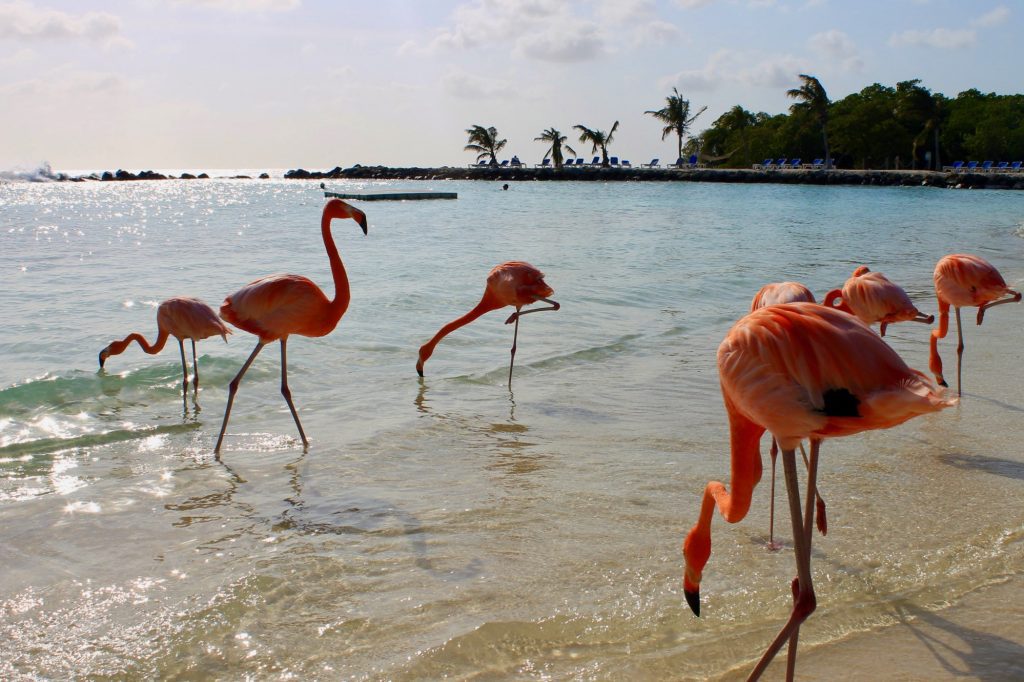Skift Take
European territories in the Caribbean are increasingly facing demands from mainland officials to diversify beyond tourism, in light of recent natural and health disasters. Aruba is the latest example of that.
A collapse in tourism due to the coronavirus pandemic has sent Aruba toward one of the world’s biggest economic contractions, prompting the island to try to diversify beyond its sun and sand image, namely by restarting a long-idled oil refinery.
Assistance from the Netherlands helped the Caribbean island finance a stimulus program, blunting the impact of the economy’s 25.5% contraction on workers and businesses in 2020. That downturn was behind only Libya, Maldives and Venezuela, International Monetary Fund (IMF) data show.
But those subsidies led to an increase in Aruba’s fiscal deficit to 17% of gross domestic product (GDP), according to the IMF, prompting some experts and residents to argue the island should diversify its economy to ensure the government can balance its budget without Dutch assistance.
The 67% drop in tourism arrivals was devastating for small businesses like Aruba Bob Snorkeling, which used to run multiple tours a day before the COVID-19 pandemic hit.
“When COVID came around, they just came crashing down to once a day, once or twice a week, and then to nothing at all,” said instructor and part-owner Jesus Maduro, 30, while sipping coffee under the shade of solar panels in the company’s tree-filled backyard.
But the company kept up rent and electricity payments thanks to quarterly 4,000 florin ($2,247.19) subsidies from the government. Such payments helped keep company closures below 2019 levels, said Martijn Balkestein, executive director of Aruba’s Chamber of Commerce.
As a constituent country of the Kingdom of the Netherlands, Aruba is receiving assistance from Amsterdam. The Netherlands has agreed to cover Aruba’s financing needs during the pandemic contingent on economic reforms, such as cuts in public sector salaries implemented last year. But Dutch officials have said they ultimately expect Aruba, as well as other constituent Caribbean islands Curacao and Sint Maarten – which are part of the Kingdom of the Netherlands but have autonomy over domestic affairs – to be self-reliant.
Fitch Ratings rates the island’s debt at BB, below investment grade. Aruba in 2012 issued a $253 million bond with a 4.625% yield maturing in 2023.
TALK OF REOPENING REFINERY
After closing its borders in March 2020, the island reopened for tourism last June for visitors who present a negative coronavirus test. The country has reported 10,324 COVID-19 cases and 92 deaths.
But the local business community is not banking on an immediate rebound in tourism to restore government finances. The Aruba Hotel and Tourism Association forecasts hotel occupancy will remain at less than half capacity in 2021.
“The pandemic shows very loud and clear to everybody living in Aruba that we cannot rely on one pillar,” Balkestein said.
To that end, authorities are in talks with a U.S. company seeking to build a liquefied natural gas import terminal on the site of an oil refinery that has been idled since 2012. Another company is seeking to restart the plant itself.
In 2012, the refinery’s former operator, U.S.-based Valero Energy Corp, abandoned it over low profits.
Still, some residents hope its revival could change the fortunes of San Nicolas, the rundown refinery town on Aruba’s southeastern tip a half hour’s drive from the glitzy beachfront hotels and casinos dotting the island’s west coast, whose largely empty mural-flanked streets are lined with shuttered dive bars.
“You can see, it’s a ghost town,” said Kendrick Kock, a cell phone repair shop owner who saw sales drop 50% last year, prompting him to lay off his two employees. “If they don’t open the refinery soon, this would be case closed for San Nicolas.”
($1 = 1.7800 florins)
(Reporting by Luc Cohen in San Nicolas, Aruba; Editing by Aurora Ellis)
This article was written by Luc Cohen from Reuters and was legally licensed through the Industry Dive publisher network. Please direct all licensing questions to [email protected].
The Daily Newsletter
Our daily coverage of the global travel industry. Written by editors and analysts from across Skift’s brands.
Have a confidential tip for Skift? Get in touch
Tags: coronavirus, coronavirus recovery
Photo credit: Aruba's slow tourism recovery means the potential reopening of an oil refinery plant. Amanda O'Kane / Flickr Commons
